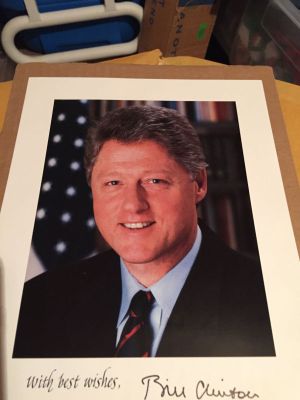If you’re reading this, you’re probably somewhat familiar with Stephen Jay Gould. Most likely, you know of him as a paleontologist and evolutionary biologist, and you may even have read one of his (excellent) popular-science books like The Panda’s Thumb. You probably assumed, like I did, that from this work and as a Harvard professor he was an eminent figure in academia as well.
Well, no.
I remember first learning about Gould’s most famous theory, “punctuated equilibrium“, quite some years back. I won’t digress into the details here, but when I thought I’d understood it, I remember thinking something like, “OK this might be true, but then what?” I assumed that I was missing something and didn’t think much more of it.
Then a few years ago, the scales fell from my eyes. This letter in reply to a couple of Gould’s summarizes how “real” evolutionary biologists felt about Gould:
John Maynard Smith, one of the world’s leading evolutionary biologists, recently summarized in the NYRB the sharply conflicting assessments of Stephen Jay Gould: “Because of the excellence of his essays, he has come to be seen by non-biologists as the preeminent evolutionary theorist. In contrast, the evolutionary biologists with whom I have discussed his work tend to see him as a man whose ideas are so confused as to be hardly worth bothering with, but as one who should not be publicly criticized because he is at least on our side against the creationists.” (NYRB, Nov. 30th 1995, p. 46). No one can take any pleasure in the evident pain Gould is experiencing now that his actual standing within the community of professional evolutionary biologists is finally becoming more widely known.
In other words, evolutionary biologists considered Gould what we might call a “useful idiot”. The letter continues with one of the meanest paragraphs I’ve ever read:
Now, given the foregoing, one is left with the puzzle of why Gould so customarily reverses the truth in his writing. We suggest that the best way to grasp the nature of Gould‘s writings is to recognize them as one of the most formidable bodies of fiction to be produced in recent American letters. Gould brilliantly works a number of literary devices to construct a fictional “Gould” as the protagonist of his essays and to construct a world of “evolutionary biology” every bit as imaginary and plausible as Faulkner’s Yoknapatawpha County. Most of the elements of Gould‘s writing make no sense if they are interpreted as an honest attempt to communicate about science (e.g., why would he characterize so many researchers as saying the opposite of what they actually do) but come sharply into focus when understood as necessary components of a world constructed for the fictional “Gould” to have heroic fantasy adventures in — adventures during which the admirable character of “Gould” can be slowly revealed.
Wow. (To be fair, Gould really did bring this on himself. Read the entire discussion.) So, stay for Gould’s pop essays, pass on his “theory”.
Around the same time, I found a talk by Paul Krugman entitled What Economists Can Learn from Evolutionary Theorists. Krugman had the same unpleasant surprise about Gould that I did, and dropped another nugget:
I am not sure how well this is known. I have tried, in preparation for this talk, to read some evolutionary economics, and was particularly curious about what biologists people reference. What I encountered were quite a few references to Stephen Jay Gould, hardly any to other evolutionary theorists. Now it is not very hard to find out, if you spend a little while reading in evolution, that Gould is the John Kenneth Galbraith of his subject. That is, he is a wonderful writer who is bevolved by literary intellectuals and lionized by the media because he does not use algebra or difficult jargon. Unfortunately, it appears that he avoids these sins not because he has transcended his colleagues but because he does does not seem to understand what they have to say; and his own descriptions of what the field is about – not just the answers, but even the questions – are consistently misleading.
Now, you’re probably less likely to be familiar with John Kenneth Galbraith. I first encountered him in William F Buckley’s excellent Firing Line archive. (Go watch for a while; I’ll be here when you come back.) Galbraith played the role of “Serious Liberal Economist”, counterpoint to Buckley and his guru the (actual) Serious Conservative Economist Milton Friedman. Before life as a public intellectual, Galbraith did extensive work in public policy and politics, in addition to economics. But as Krugman introduces before the paragraph above,
And I guess it is no secret that even John Kenneth Galbraith, still the public’s idea of a great economist, looks to most serious economists like an intellectual dilettante who lacks the patience for hard thinking.
Ouch. (Although, I’ve read that Krugman’s dismissal of Galbraith is somewhat more controversial than the dismissal of Gould, that Galbraith’s public policy work had substance.)
Both these were quite surprising to me — I hope you learned something as well. And it’s always worth checking the credentials of the popular “TV experts”.


 The White House sent back a form letter and picture in response to a letter of mine that I’ve forgotten now — and yes, using physical mail carried by the Post Office. Golf was an incredibly boring niche game that only old rich white guys played; somebody named “Tiger” was just turning pro. The two movies I remember most from around then are Independence Day and Space Jam. Although now that Independence Day, Space Jam, and a Clinton presidency have been or are about to be remade, some things haven’t changed much.
The White House sent back a form letter and picture in response to a letter of mine that I’ve forgotten now — and yes, using physical mail carried by the Post Office. Golf was an incredibly boring niche game that only old rich white guys played; somebody named “Tiger” was just turning pro. The two movies I remember most from around then are Independence Day and Space Jam. Although now that Independence Day, Space Jam, and a Clinton presidency have been or are about to be remade, some things haven’t changed much.